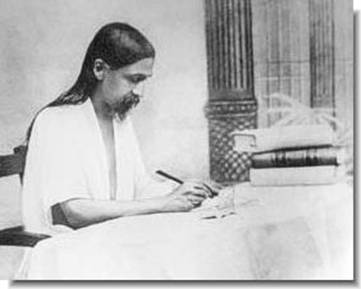
| August 2010 Volume XI, Issue |
Vision is the characteristic power of the poet, as is discriminative thought the essential gift of the philosopher and analytic observation the natural genius of the scientist. The Kavi* was in the idea of the ancients the seer and revealer of truth, and though we have wandered far enough from that ideal to demand from him only the pleasure of the ear and the amusement of the aesthetic faculty, still all great poetry instinctively preserves something of that higher turn of its own aim and significance. Poetry, in fact, being Art, must attempt to make us see, and since it is to the inner senses that it has to address itself,—for the ear is its only physical gate of entry and even there its real appeal is to an inner hearing,—and since its object is to make us live within ourselves what the poet has embodied in his verse, it is an inner sight which he opens in us, and this inner sight must have been intense in him before he can awaken it in us. SRI AUROBINDO
* The Sanskrit word for poet. In classical Sanskrit it is applied to any maker of verse or even of prose, but in the Vedic it meant the poet-seer who saw the Truth and found in a subtle truth-hearing the inspired word of his vision. |
|||
|---|---|---|---|---|
 |
||||
|
||||
Losing Faith in Faith: |
||||
Spiritualized Society: Some Reflections |
||||
| Journal Archives click here | ||||
copyright © |
||||
 |
||||
